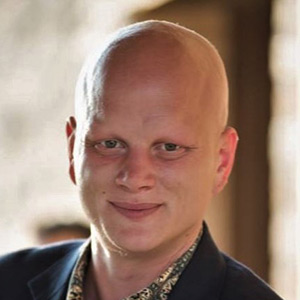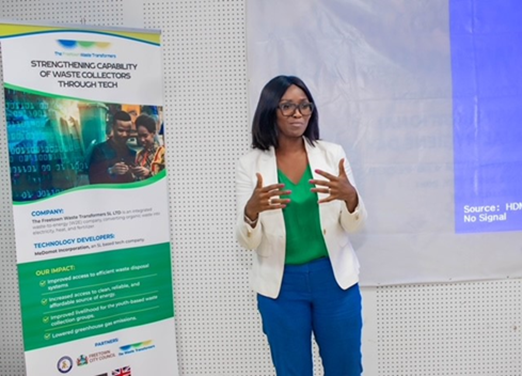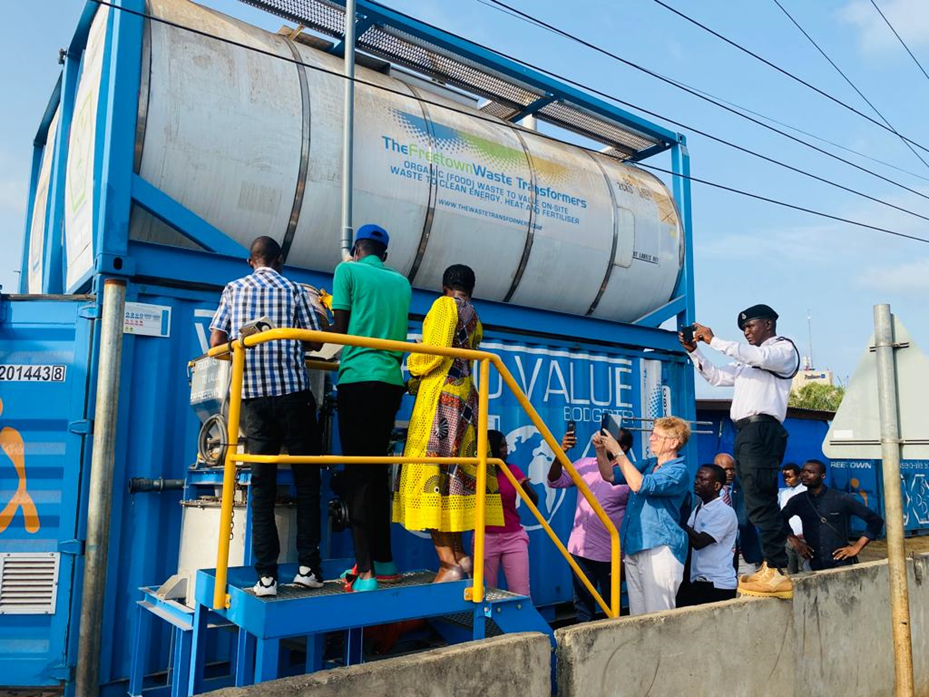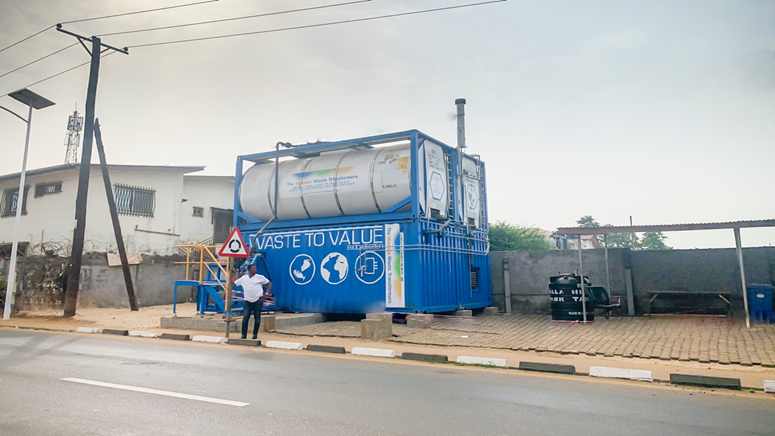Freetown Waste Transformers (FWT) is an integrated waste-to-energy company operating in Freetown, Sierra Leone. There, it has successfully deployed a waste-to-energy pilot using proprietary technology (waste transformer) to convert organic (food) waste into electricity, heat, and fertiliser right at customers’ doorsteps, cutting costs on energy and waste management bills.
Sierra Leone has one of the lowest energy access rates globally, with 76 per cent of the population having no access to electricity. Limited energy access and an unreliable grid has led to mass use of diesel generators, especially amongst MSMEs. The waste management infrastructure in Freetown is beset with inefficient collection processes, and thus, waste management remains a challenge for the city to address. FWT aim to address these twin problems, by providing a unique solution to waste disposal and enabling access to clean, affordable energy.
The GSMA are supporting FWT in digitising the waste collection process by implementing a GPS mobile mapping app to improve the efficiency of existing waste coordination. To scale this solution, increased organic waste input will be required to feed FWT’s anaerobic bio-digesters, highlighting the need to better coordinate input of organic waste. Key to the digitisation process will be a mobile app, which would be used by waste collectors, in partnership with the Freetown City Council, to manage inputs from waste collection partners, and provide live data. This will include data on waste volumes, types of waste and time being collected and the different site locations, ensuring timely input to the digesters, in turn maximising productivity and reliability of service.
We caught up with Aminata Dumbuya-Jarr, Founder and CEO of FWT, to discuss her expectations for how their solution will evolve of the coming years.
What need does FWT cater to?
We are implementing a solution that will strengthen the capacity of waste collectors in Freetown through tech and allow for households and businesses to have access to waste collection services at their fingertips. Our waste app will better coordinate the activities of the waste management sector and provide all stakeholders with relevant information and data to enhance the effectiveness and efficiency of waste collection services in Freetown.
Our waste app, which is called, The DortiBox App, will be the first of its kind in Sierra Leone, and is poised to go live in December 2022. It will do so with a range of features that will allow households to identify and subsequently select a waste collector provider in their vicinity and request an immediate waste pick up or schedule a pick up, and at the same time remit payment via one of the two mobile operators. Furthermore, households are also able to track when pick up is being carried out as well have an opportunity to grade the service of the collector. Most importantly, the utilisation of the app by both households and the waste collectors, will allow for FWT to have visibility on pertinent datasets it needs to scale its waste to energy operations. The DortiBox App deployment is critical to the success and sustainability of the entire project portfolio.
What are the challenges you expect to encounter in deploying the solution and with digital adoption?
The introduction of a new technology to a population that has yet to fully grasp the use of mobile money could prove to be a major obstacle. Waste management services span demographics, and in a city with an overwhelming slum population and low literacy levels, digitising public sector services can be challenging to adopt.
Additionally, the majority of households still consider waste collection services to be the responsibility of the local councils/government, and as a result, most are reluctant to pay for the collection of their waste.
We are working closely with the city council to support sensitisation and awareness raising efforts, as well as devising its own behavioural change campaign that will seek to engage households at all levels. At the same time, this will popularise messaging on the importance of digitising of waste management and the benefits associated with this sanitation and waste conversion initiative.
What are you expecting to learn through working with the GSMA?
Through working with the GSMA, I am eager to learn and understand the dynamics at which the intersectionality between public service provision and digitalisation can be transformative and enhance livelihoods for communities and cities alike. Waste management has always been considered to be within the purview of the local authorities, it will be interesting to see how the deployment of the DortiBox App can further underscore the necessity of the role the private sector can play in such a public sector domain.
Our pilot client, at the Aberdeen Women Centre provides the only comprehensive fistula repair service to underprivileged women in Sierra Leone and has the capacity to treat up to 300 fistula patients per year. The centre was selected to be the pilot client due to the enormous reliance they have on diesel powered generators, and with the high cost of diesel, the centre spends a lot more on fuel to power up the clinic than it can raise in funds to sustain its operations. The installation in Aberdeen has contributed to minimising the overhead costs of the clinic and is poised to reduce fuel cost by at least 25 per cent when additional upgrades are made to the installation in the coming months.
Furthermore, institutions such as the Freetown City Council (FCC) are being considered as potential off-takers during the roll out phase of the project. With FCC, we are considering installing with a cooling unit that will be placed in a market area to assist with cooling of produce and other perishable food items to minimise wastage and loss of income for market women.
How do you see your business model evolving?
Currently, FWT and its technology partners have secured development funding to scale the project to increase from one installation to five within the next year; to allow for more learnings to occur before doing a full roll out to the 40 installations envisioned. At present, the business model is that FWT delivers installations to MSME’s on an off-take agreement that allows for them to purchase electricity produced per kilowatt hour. On average, each installation will generate between 50Kva to 150KWA of electricity and double that amount in heat, which can be used for cooling purposes.
With this amount of electricity and thermal heat, the MSMEs can potentially reduce their power bill by over 35 per cent with our solution and also minimise their carbon footprint. In addition to the electricity and thermal heat being generated, each installation will produce on average 1,000 litres of nutrient rich digestate per day which can be sold as organic fertiliser when certified.
As FWT operationalises its ambitious initiative to digitalise the waste management sector as a sole proprietorship company, we envisage the need to pivot its business structure to a joint venture corporative business model, making room to attract more investment to finance its capital-intensive initiative of harnessing and introducing technological intervention to a virgin sector globally. The scope of this initiative spans across national and regional borders, to give customers visibility on their waste streams and carbon footprints and provide a quick response to waste collection requests.
What partnerships have you formed, and what partnerships do you hope to form in the near future?
Nationally, we have started discussions with two major mobile operators, namely Orange and Africell, specifically with their commercial/ business units, with the aim of partnering with both companies, and integrating their mobile money system API into our waste app to facilitate a quick response payment service on our platform. The partnership with the mobile operators is key to the success of our solution as this will allow for households and businesses to directly pay for their waste collection services and in turn allow for the waste collectors to have a secure platform in which they can collect and host their funds. At present, waste collectors deal with cash payments from customers and sometimes are owed in arears; the mobile money payment option in the app will help to automate and streamline this process very efficiently.
What needs to happen for your service to scale and become sustainable?
Overcoming the challenges highlighted, related to the lack of awareness on the technology, and willingness to pay for waste collection services are critical to our scaling. Beyond that we are looking to raise funding for building awareness around the benefits of a clean and heathy environment, illegal dumping, proper waste handling and treatment, waste recycling, and promoting the waste app (a platform that coordinates all these activities in one place), to successfully scale the optimisation of this app.
THIS INITIATIVE IS CURRENTLY FUNDED BY THE UK FOREIGN, COMMONWEALTH & DEVELOPMENT OFFICE (FCDO), AND SUPPORTED BY THE GSMA AND ITS MEMBERS.







